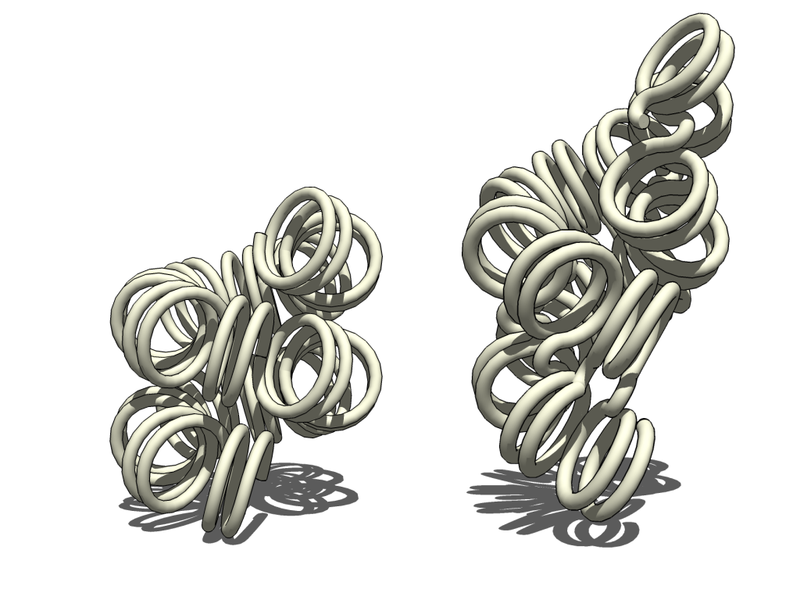Are you Gleefully Gargantuan?
If so, it may be in your genes. The stereotype of rotund, jolly people full of mirth may have biological rational!
Researchers at McMaster University analysed 17,200 DNA samples from people in 21 countries. They found a gene called FTO that is associated with a significant eight per cent reduction in the risk of depression. This gene is also linked with obesity. 
So instead of trying to convert addicts by highlighting the dangers of drugs, due to their brain biology it might be better to emphasie the benefits of staying clean.
Neuroimaging study: Negative messages less effective on those who are substance dependent DOI: 10.1037/a0030633
Unraveling what it means to be human
Published in PLoS Biology, short DNA strands, previously thought to be 'junk DNA' may be key to understanding how human evolved their higher cognitive functions, like reasoning, flexibility in thinking and planning. It may also explain why human specific brain diseases like autism and alzheimers, appeared according to researchers from Mount Sinai School of Medicine,
 Hundreds of regions throughout the human genome show different 3D helical looping structure in the DNA of nerve cells in the prefrontal cortex,, compared to non-human primates. These regions do not code for proteins, which is why they were thought to be junk DNA, but instead determine how the DNA helix packages up intro a loop structure, and this may affect how other genes are regulated and expressed, plu play a critical role for human brain development.
Hundreds of regions throughout the human genome show different 3D helical looping structure in the DNA of nerve cells in the prefrontal cortex,, compared to non-human primates. These regions do not code for proteins, which is why they were thought to be junk DNA, but instead determine how the DNA helix packages up intro a loop structure, and this may affect how other genes are regulated and expressed, plu play a critical role for human brain development.
Human-Specific Histone Methylation Signatures at Transcription Start Sites in Prefrontal Neurons. doi:10.1371/journal.pbio.1001427
Boosting brain power with a diabetic drug already on the market
An FDA-approved drug initially used to treat insulin resistance in diabetics could be used to treat cognition in Alzheimer's disease, according to a multi-disciplinary study by researchers at University of Texas Medical Branch.
Published in Journal of Neuroscience Professor Larry Denner and colleges found the anti-insulin-resistance drug rosiglitazone also enhances learning and memory by reducing extracellular signal-regulated kinase (ERK), a protein involved in communication between nerve cells. Well, that's according to a study in mice anyway.
Cognitive Enhancement with Rosiglitazone Links the Hippocampal PPARγ and ERK MAPK Signaling Pathways. doi:10.1523/JNEUROSCI.2153-12.2012
- Previous A Researchers Pick of Neuroscience News
- Next Wheat genome decoded










Comments
Add a comment